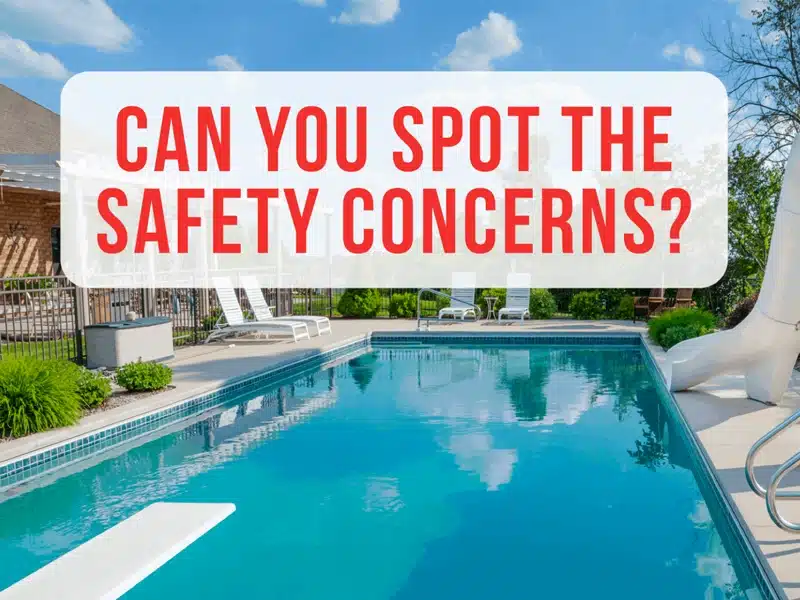Airbnb Laws in the State of Georgia—Insurance Required in Some Cities
Recently, many municipalities in Georgia have reevaluated their Airbnb Laws in the wake of increased tourism in 2021. With many of these changes come requirements for permits, noise restrictions, and liability insurance underlining the importance of staying up-to-date on the regulations in your area.
If you have questions about short-term rentals in Georgia, contact Proper Insurance. Our agents are experts in the vacation rental industry. Call 888-631-6680 today.

Alpharetta, Georgia Airbnb Regulations
View Current STR Laws for Alpharetta, GA
In response to growing concerns about the impact of short-term rentals (STRs) on residential neighborhoods, the Alpharetta City Council adopted Ordinance No. 881 in January 2025. This ordinance aims to balance the economic benefits of STRs with the need to maintain the character and safety of local communities. Key provisions include:
Hosts in Atlanta are subject to the Airbnb laws outlined in Atlanta’s short-term rental ordinance 20-O-1656.
- Licensing: Owners must obtain an annual STR license from the city, with renewals due by January 31 each year.
- Zoning: Alpharetta short-term rentals may not be located immediately adjacent to another STR along the same street or road.
- Occupancy Limits: STRs are limited to no more than one residential lot or 5% of the residential lots within each platted subdivision, whichever is greater.
- Conduct Standards: Operators must adhere to occupancy limits, noise restrictions, and conduct standards that align with most online rental platforms.
- Homeowners Association (HOA) Compliance: If the property is governed by an HOA, owners must provide evidence that short-term rentals are permitted under HOA regulations.
- Taxes: Operators are required to collect and remit applicable state and local taxes, including a 4% state sales tax and any local hotel-motel taxes.
- Penalties: Non-compliance may result in fines, license suspension, or revocation.
- More Information: For detailed information on the application process and compliance requirements, visit the City of Alpharetta’s Business Licenses page.
Atlanta, Georgia
Amends Airbnb Laws and Regulations
Atlanta decided on amendments to the City’s Airbnb laws in mid-March. The City of Atlanta houses thousands of travelers each year for conventions, conferences, and major sporting events, which allows hosts easy access to a steady stream of income if they choose to join the short-term vacation rental scene.
Hosts in Atlanta are subject to the Airbnb laws outlined in Atlanta’s short-term rental ordinance 20-O-1656.
- License: No person or entity shall rent, lease, or otherwise exchange for compensation for all or any portion of the dwelling unit as a short-term rental unit without first obtaining a short-term rental license ($150.00 annually through the Department of Planning and Community Development).
- Noise: It is unlawful to allow or make any noise or sound that exceeds the limits set forth in the City’s noise ordinance. Units are encouraged to provide a noise monitoring device.
- Point of Contact: The owner of a short-term rental shall designate a short-term rental agent to be available to handle any problems arising from using the short-term rental unit.
- Penalty: Fully adjudicated violations of ordinance 20-O-1656 will be assessed a $500 penalty per violation.
- Taxes: Short-term rentals are subject to applicable state and local taxes and are responsible for payment thereof as established by state law and the city code.
Visit Avalara and MyLodgeTax for more details on the hotel-motel tax for short-term rentals under the new regulations.
In addition to these amended regulations, the City is now enforcing noise ordinances over short-term rentals and is recommending owners install noise monitoring devices to comply with these new ordinances. There are many companies on the market offering noise monitoring devices specifically for short-term rental hosts. For more information, visit Minut or NoiseAware.
Cherokee County, Georgia
Enacts New Airbnb Laws—Proof of Insurance Now Required
The Cherokee County Board of Commissioners last discussed Airbnb laws and regulations in June of 2021. The Commissioners’ primary concerns expressed were the issue of properties owned and operated by non-residents and how to create standards to prevent homes from being used as party houses unbeknownst to the owners. With this in mind, each short-term rental property is subject to the following requirements:
- Certificate: A separate short-term rental certificate shall be required for each property used for short-term rental (the cert. Number must be listed on any advertisements).
- Use limitations: No short-term rental shall function as a special event facility, lodge, campground, or similar use.
- Taxes: Short-term rentals are required to pay all applicable hotel taxes
- Proof of Ownership: Hosts must provide proof of ownership of the short-term rental;
- Point of Contact: Hosts must provide written confirmation from the local contact person that he or she agrees to perform the duties specified in this division.
- Hosts must provide proof of insurance.
As we see with this ordinance, many communities are passing laws with some type of insurance requirement. The concern is most are inadequate or often misleading.
The primary reason for an insurance requirement is to ensure that short-term rental owners are properly protected from injuries or property damage. However, the current requirement may cause confusion for owners as the type of insurance is not defined.
Commercial general liability is found in business insurance policies and protects the insured against claims of bodily injury or property damage for which they could be found legally liable. It is the most comprehensive liability insurance one can purchase for short-term rentals.
Cobb County, Georgia
Requires Short-Term Rental Permit
Cobb County has regulations in place for short term rentals (STRs) to protect the health, safety and general welfare of individuals and the community at large. Additional information can be found within Cobb County’s short-term rental laws and Airbnb regulations.
The current regulations are in place:
- Certificate: Must obtain a STR certificate from the county before any STR stays occur.
- Zoning: STR property must be zoned residential.
- Taxes: The owner is responsible for collecting hotel/motel, tourism fees and other state or local fees/taxes.
Dawson, Georgia
Requires Short-Term Rental Permit
The city of Dawson has implemented new regulations to operate an STR which includes acquiring a short-term rental (STR) permit. To enforce this, they are doing investigations shall the host fail to comply with the regulations. To stay up to date with the ever-changing regulations, please visit the Dawson County Municipal Code website.
The current regulations are in place:
- Permit: Hosts must obtain a valid STR permit to operate. They are valid for 12 months.
- Taxes: STRs are subject to county taxes.
- Occupancy: Maximum occupancy is limited to two people per bedroom plus two additional people.
- Parking: Must provide off-street parking as on-street parking is not allowed for any purposes.
- Solid Waste: Provide adequate solid waste bins to prevent wildlife from eating the trash and use a professional waste collection company to pick up regularly.
- Safety: Buildings must be up to city safety codes, contain the approved smoke detectors, carbon monoxide detectors, fire extinguishers and signage for pools/spas.
- Guest Rules: Hosts must provide guests with a list of rules to follow. The list includes:
- Quite hours
- Maximum occupancy
- State that large gatherings are prohibited
- Parking instructions
- Garbage directions
Rabun County, Georgia
New Regulations Put in Place
Rabun County implemented new rules and regulations by zoning the city for short-term rentals in an effort to keep neighborhoods peaceful. If the rules are not followed, it could result in a substantial penalty. As of January 1, 2023, short-term rentals (STRs) must hold valid licensing and permitting. However, some properties that already had a license may be grandfathered in.
The following regulations are currently enforced:
- Permit Requirement: Every short-term rental host must obtain a permit from the county.
- Zoning: Homes used for STRs must be zoned within the Vacation Cottage District.
- Occupancy Limit: A maximum of 10 people is allowed to stay at the STR, two people per bedroom.
- Noise: There could be penalties for disrupting the neighborhood peace.
- Safety Features: May require hosts to have a functioning smoke detector and other safety features.
- Parking: No more than two vehicles per home, and there must also be designated parking.
- Landline Phone: A landline with the ability to call 911 must be available.
- Point of Contact: Must have a representative who is a resident of Rabun County who can be readily available at all times of the day in case of an emergency or occurrence such as a loud party, unpermitted event, or violation of the STR agreement.
Savannah, Georgia
New Airbnb Laws Include Insurance Requirements
If you’re a vacation rental host in Savannah, you’ll want to review Airbnb Laws and regulations affecting short-term rentals across the city. Hosts like yourself must apply annually for a short-term rental certificate to operate your Airbnb business and provide the name, address, telephone number, and email address of the 24-hour contact. Additional requirements include the following:
- Proof of Ownership: Proof of the owner’s current ownership of the short-term vacation rental unit;
- Condo Leasing Reqirements: For condominiums, hosts must provide a copy of the adopted condominium declaration either explicitly permitting leasing of the dwelling units for less than 30 days or the adopted condominium declaration which contains no prohibition on short-term vacation rentals or the leasing of dwelling units for less than 30 days;
- Proof of insurance indicating the premises are used as a short-term vacation rental unit.
Ultimately the city hopes regulations will preserve the character of their neighborhoods and allow hosts and neighbors alike to enjoy their properties.
Savannah doesn’t currently define the type of insurance, while ordinances commonly provide a liability insurance minimum, such as $1,000,000. Simply stating “liability insurance” or “proof of insurance” doesn’t accomplish much, as there are several types of coverage you can purchase for a short-term rental. Out of the three types of liability coverage, personal, premise, and commercial general liability, commercial general liability is the most comprehensive liability insurance you can purchase. It is found in business insurance and protects you against claims of bodily injury or property damage.
Here are some additional coverage options you should have on your policy:
- Replacement cost valuation; building & contents
- No limit on theft or vandalism
- No limit on property damage from a guest
- Liability continued over amenities
- Liability continued off-premise
- Lost business income
South Fulton, Georgia
NEW Airbnb Ordinance- Special Permit for Short-Term Rentals
The City of South Fulton is temporarily revoking all business licenses issued for Short-Term Rentals and Rooming Houses. Airbnb Ordinance South Fulton states that all owners must apply for and be approved for a Special Use Permit by June 1st, 2023 to operate STRs within city limits. The special use permit must “allow for the examination of potential impacts, assess, and impose building and safety provisions for occupants, and provide conditions to mitigate impacts created by increased occupancy levels and allow for annual license renewal after obtaining an approved Special Use Permit.”
If you do not comply with the new requirements, your business license will be permanently suspended or revoked until you complete the application process for the required Special Permit for Short Term Rentals South Fulton. You are also subject to being fined from $500 to $1,000 per day for non-compliance.
How to Apply for a Special Use Permit:
- Submit the rental license application and pay the fee
- Staff reviews and writes staff report
- Postcard notices are to be sent out to the impacted area within ¼ mile of the project site
- Signage: Special-use signs are posted at the subject project site
- Applicant hosts community meeting (CZIM)
- Attend Planning Commission (Public Hearing)
- Receive the Planning Commission’s recommendation forwarded to the Council
- The City Council public hearing is held
- If the Special Use Permit is approved, we can move forward with the business license. If it is denied, you will be eligible for resubmittal after six months
Along with the new Airbnb Ordinance South Fulton, owners are also required to have proof of at least $500,000 in liability coverage that shows the property is used as an STR. Liability insurance is put in place to protect owners from any property damages or injuries that may occur. Standard homeowner’s policies often do not provide coverage for business activities, and since short-term rentals are considered businesses, it is very important that you have a policy that is specifically designed for this purpose. Proper has designed a custom-penned policy that’s dedicated to short-term rentals and will be there for you when an issue arises. With Proper, you won’t have to deal with denied claims due to business activity exclusions and can be assured that your coverage requirement is met. You can find additional information on the regulation changes in South Fulton on the city’s website.
Tybee Island, Georgia
Enacts New Airbnb Laws After a Long Legislative Debate
Tybee Island City Council has moved forward on new Airbnb laws after years of debate. This decision has stemmed from residents stating that vacation rentals are diminishing the quality of life and sense of community inherent in residential neighborhoods. On the other hand, vacation rental owners and management companies defend the business as crucial to the island’s economy and call claims of harm exaggerated or unsubstantiated. Within the new ordinance, there are regulations regarding insurance, application requirements, occupational tax certificates, and more.
Changes and additional laws include:
- Taxes: All STR must apply and be approved for an occupation tax certificate with the City of Tybee Island. Regulatory fees and taxes will be collected based on the unique property identification number associated with these tax certificates.
- Designated Agent: The owner shall be required to designate an agent for any short-term vacation rental unit. “Short-term vacation rental agent” is a local contact person designated by the owner who shall be available at all times to respond to complaints regarding the condition, operation, or conduct of occupants of the STVR.
- Contact Information: All one- and two-family STVR units shall post a sign that shall be visible and legible from the address side of the street listing the emergency contact name and phone number.
- Proof of liability insurance shall be required, along with evidence that the insurance company knows the property is being used as a STVR.
Tybee Island, Georgia, did the right thing in requiring liability insurance for all hosts, as well as outlining that your insurance company has to understand that you are operating a vacation rental. The primary reason for an insurance requirement is to ensure that short-term rental owners are properly protected from injuries or property damage, and that’s why it’s crucial that your policy is tailored to short-term rentals. A normal homeowner’s policy would not provide you coverage if something were to happen at your vacation rental. All homeowner’s policies carry a ‘business activity exclusion,’ and as a short-term rental operator, you are running a business. The second you mention ‘business activity’ while trying to make a claim with your homeowner’s policy, you will be denied and let to pay out of pocket. This is why Proper has designed a custom-penned policy that’s dedicated to short-term rentals and will be there for you when an issue arises.
White County, Georgia
Places a 120-day moratorium on short-term rental permits starting Oct. 2, 2023
To filter out the in active and illegal short-term rentals (STRs) in the county, the board of commissioners voted to put a memorandum on STR permits for 120 days. This will allow the city to better understand the market for STRs and how to regulate them. Any application submitted before Oct. 2, 2023, will be honored. In addition to submitting a short-term rental license, hosts should also be aware of White County’s regulations.
The current regulations are in place:
- Display the following clearly at the short-term rental property:
- Contact information for the responsible party (host, property manager, etc.)
- Street address
- Exits for the property
- Contact information for the city planning department
- Maximum occupancy
- In Case of an Emergency, dial 911
- “This rental is located in a residential area. Please be courteous to our neighbors and the residents of this area. Any loud sounds (music, voices, etc.) or excessive activity may be reported to local law enforcement, and you may be subject to citations, fines, arrest, etc. Please respect our residential area and preserve the peaceful nature and beauty of this area.”
- Taxes: Proof of paid hotel/motel taxes
- License: Provide license number on any booking/advertisement site
- House Rules: Provide the White County Business Tax office with a copy of the house rules
- Parking: Must provide on-site parking
- Solid/Waste Management: Trash must be disposed of properly and not be left visible to guests/neighbors
- Occupancy: Subject to State of Georgia’s Fire Safety Code
- Insurance: Commercial or specific short-term rental insurance is required
- Noise: Follow all noise restrictions
- Hours of Operation: Check-in and check-out must occur between the hours of 6 a.m. and 10 p.m.
- Point of Contact: Must have a designated person who can be reached 24/7 and must respond within two hours
Quote Your Short-Term Vacation Rental Today
Interested in a policy to protect you and your business from liability and damage claims? Proper Insurance leads the Nation in short-term rental insurance, with over 100,000 policies written in all 50 states. Backed by Lloyd’s of London and exclusive endorsements from vacation rental leaders such as HomeAway and Vrbo, Proper Insurance is built on world-class insurance coverage. Proper’s policy covers vacation homes, townhouses, condos, duplexes, cabins, cottages, apartments, and more. With expert vacation rental underwriters, we can tailor a policy specific to your short-term rental property.
Please note: The information provided is intended as a guide and may not be comprehensive or current. Regulations may change and could vary by area or situation. Always consult local authorities or a legal professional to ensure you have the most accurate information for your short-term rental property.



